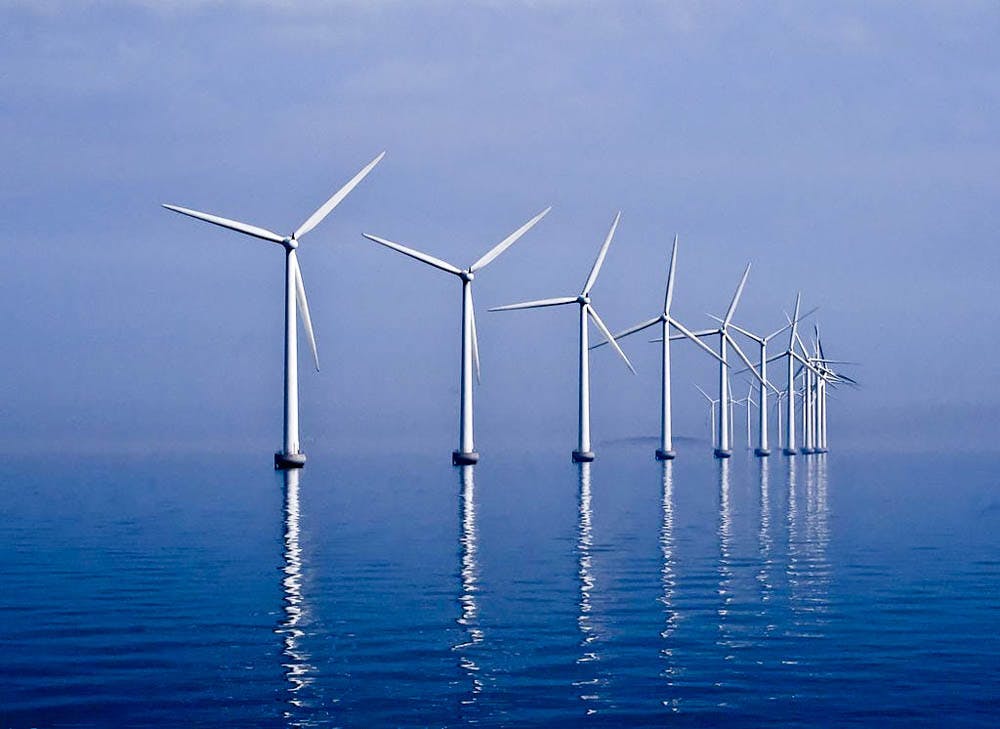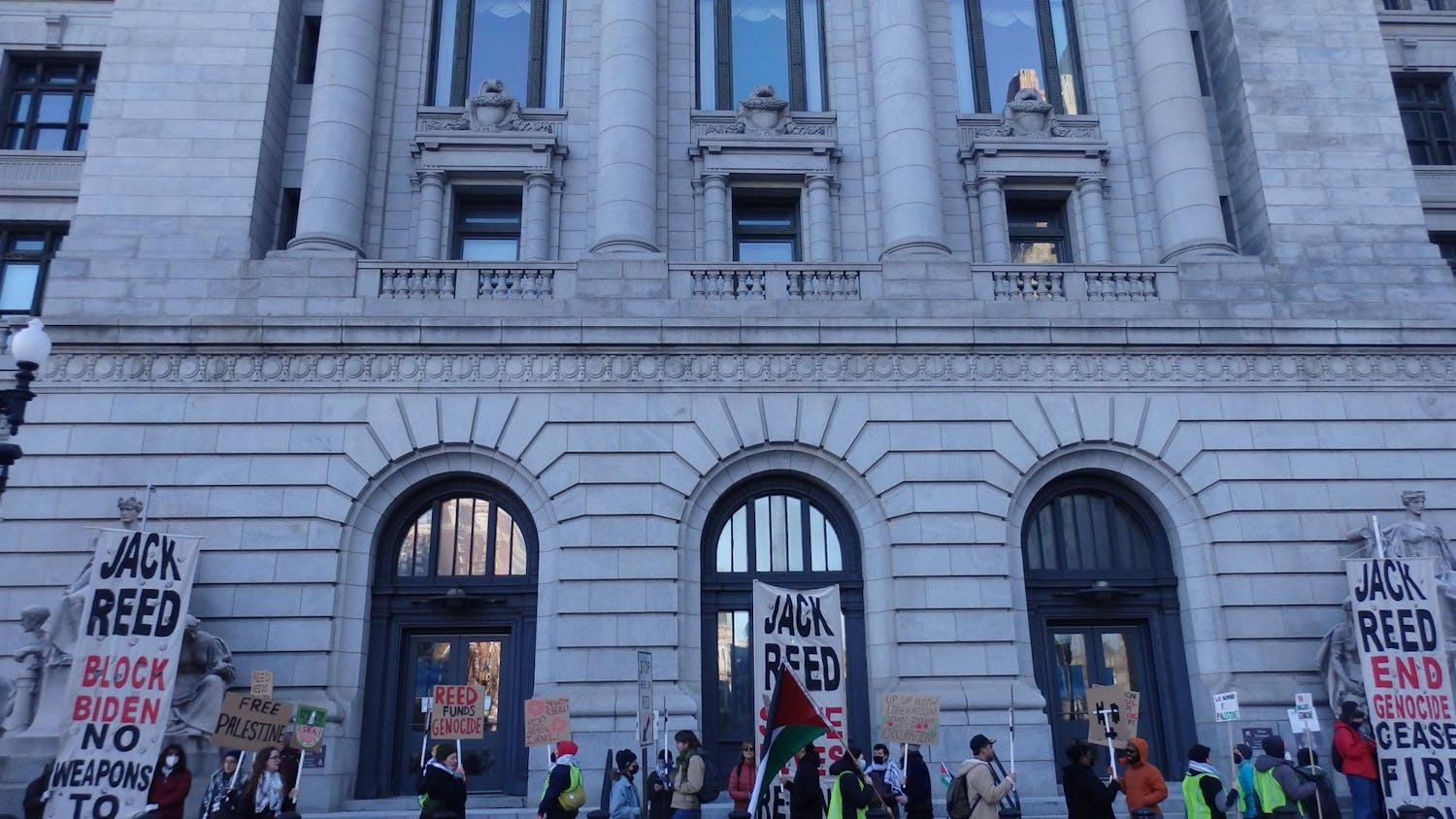Despite the partial federal government shutdown ending, public comment meetings led by the Bureau of Ocean Energy Management regarding Vineyard Wind’s plan to construct an offshore wind-turbine farm have been indefinitely postponed, according to David Bernhardt, acting secretary of the interior.
Meetings were scheduled Jan. 8, 9, 15, 16 and 17 but were continually pushed back as the government shutdown extended and BOEM workers were forced to stay home. Bernhardt tweeted Jan. 24 that BOEM would “reschedule public meetings for the Vineyard Wind offshore renewable project very soon,” but gave no timeline on the issue.
Despite the delay in public comment meetings, “construction activities on the site will begin by the end of this year” if all permits are secured, Vineyard Wind spokesman Scott Farmelant said. “Every single permit is expected to be getting in by the end of the third quarter or early in the fourth quarter,” he added. Vineyard Wind has a tax credit from the federal government should they begin building in 2019, so the timeline for construction is crucial. “They’re eligible for 12 percent tax credit if they begin construction this year,” Farmelant said. “That program is expiring as of right now.”
Vineyard Wind is confident the project will remain on schedule despite the effects of the shutdown, Farmelant said.
BOEM requires that offshore wind companies hold public comment meetings in Rhode Island because it impacts economic activities such as fishing, according to The Providence Journal. But with the delay of these public meetings, many local fishermen feel as though they have lost out on the opportunity to voice their opinions on the issue, according to Greg Mataronas, a R.I. fisherman.
Though an online commenting portal was open on BOEM’s website until Jan. 22, where fishermen could write up formal comments expressing their concerns, Mataronas finds the in-person meetings to be much more useful. “A lot of times you get guys into the room that don’t necessarily have the time or the capacity to be writing formal, written comments into BOEM,” Mataronas said.
Many fishermen are unhappy with the pace of the project. Regarding BOEM’s role specifically, “they haven’t done a great job with this process at all,” Mataronas said. “As a fisherman, it just feels rushed.”
Fisherman are concerned that the construction of the wind farm would render the area unfishable, Mataronas said. They fear that there will not be enough space in between the turbines, and that the project is dependent on old data that could prove inaccurate, and therefore damaging toecosystems. “There’s not a lot of actual, physical, current research being applied in the areas that they’re looking at developing in,” Mataronas said. “A lot of it is not sufficient for knowing the effects of the wind farm once it’s put up.”
These public comment meetings are also important for fishermen because Vineyard Wind has already suggested their project may decrease access for fishermen to their usual fishing grounds. To compensate, Vineyard Wind offered $6.2 million to fishermen for this lost access Jan. 17, according to the Providence Journal. BOEM also reduced the original amount of sea they were considering for lease to wind farm companies by 60 percent due to fishing concerns, The Herald previously reported.
Without the public comment meetings and BOEM as an intermediary, Mataronas has found communication with Vineyard Wind difficult. “As far as meaningful talks, there hasn’t been a whole lot of that past few months,” Mataronas said.
While Vineyard Wind was “selected by the Commonwealth of Massachusetts to build an 800 megawatt offshore wind farm,” R.I. has its own interest in seeing Vineyard Wind completed as a large-scale offshore wind project, said Nick Ucci, deputy commissioner of energy of the R.I. Office of Energy Resources. Rhode Island is looking into projects of its own that would help meet the energy goals set by Gov. Gina Raimondo in 2017, aiming at achieving 1,000 megawatts of clean energy by 2020. While Vineyard Wind’s clean electricity won’t add to this goal, since it will be connected to Massachussett’s power grid, the permit process would help pave the way for ensuing projects in Rhode Island, Ucci said.
Clarification: An earlier version this article ran with the headline "Government shutdown delays meetings between fishermen, Vineyard Wind." While the shutdown did delay public hearings — which allowed for comments by all members of the public, including fishermen — fishermen and Vineyard Winds were permitted to meet independently in that window. Therefore, the headline, "Government shutdown delays public hearings on Vineyard Wind project" is more accurate. The Herald regrets the error.





